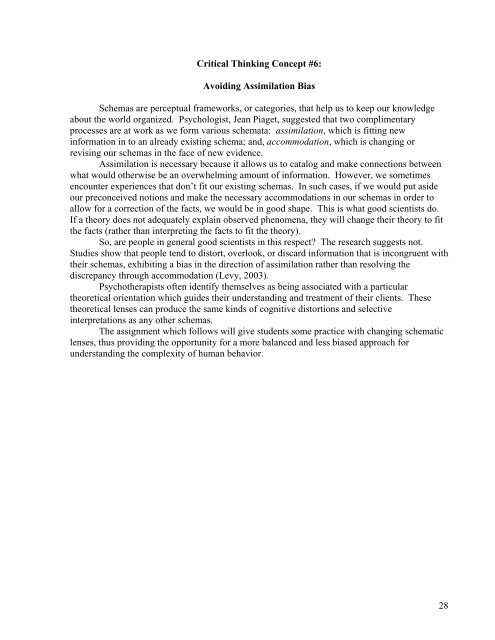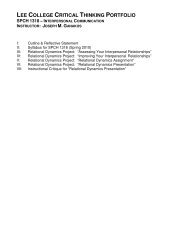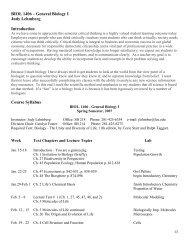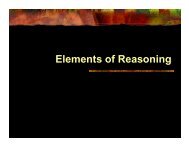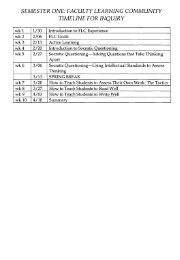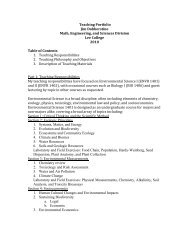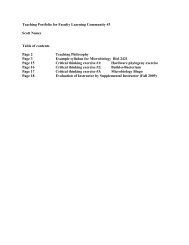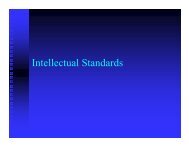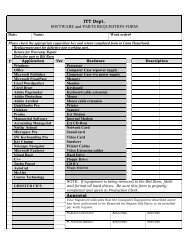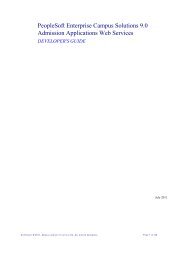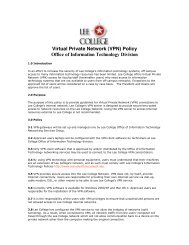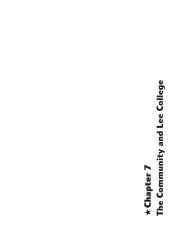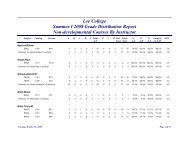Cheryl Willard - Lee College
Cheryl Willard - Lee College
Cheryl Willard - Lee College
Create successful ePaper yourself
Turn your PDF publications into a flip-book with our unique Google optimized e-Paper software.
Critical Thinking Concept #6:<br />
Avoiding Assimilation Bias<br />
Schemas are perceptual frameworks, or categories, that help us to keep our knowledge<br />
about the world organized. Psychologist, Jean Piaget, suggested that two complimentary<br />
processes are at work as we form various schemata: assimilation, which is fitting new<br />
information in to an already existing schema; and, accommodation, which is changing or<br />
revising our schemas in the face of new evidence.<br />
Assimilation is necessary because it allows us to catalog and make connections between<br />
what would otherwise be an overwhelming amount of information. However, we sometimes<br />
encounter experiences that don’t fit our existing schemas. In such cases, if we would put aside<br />
our preconceived notions and make the necessary accommodations in our schemas in order to<br />
allow for a correction of the facts, we would be in good shape. This is what good scientists do.<br />
If a theory does not adequately explain observed phenomena, they will change their theory to fit<br />
the facts (rather than interpreting the facts to fit the theory).<br />
So, are people in general good scientists in this respect? The research suggests not.<br />
Studies show that people tend to distort, overlook, or discard information that is incongruent with<br />
their schemas, exhibiting a bias in the direction of assimilation rather than resolving the<br />
discrepancy through accommodation (Levy, 2003).<br />
Psychotherapists often identify themselves as being associated with a particular<br />
theoretical orientation which guides their understanding and treatment of their clients. These<br />
theoretical lenses can produce the same kinds of cognitive distortions and selective<br />
interpretations as any other schemas.<br />
The assignment which follows will give students some practice with changing schematic<br />
lenses, thus providing the opportunity for a more balanced and less biased approach for<br />
understanding the complexity of human behavior.<br />
28


